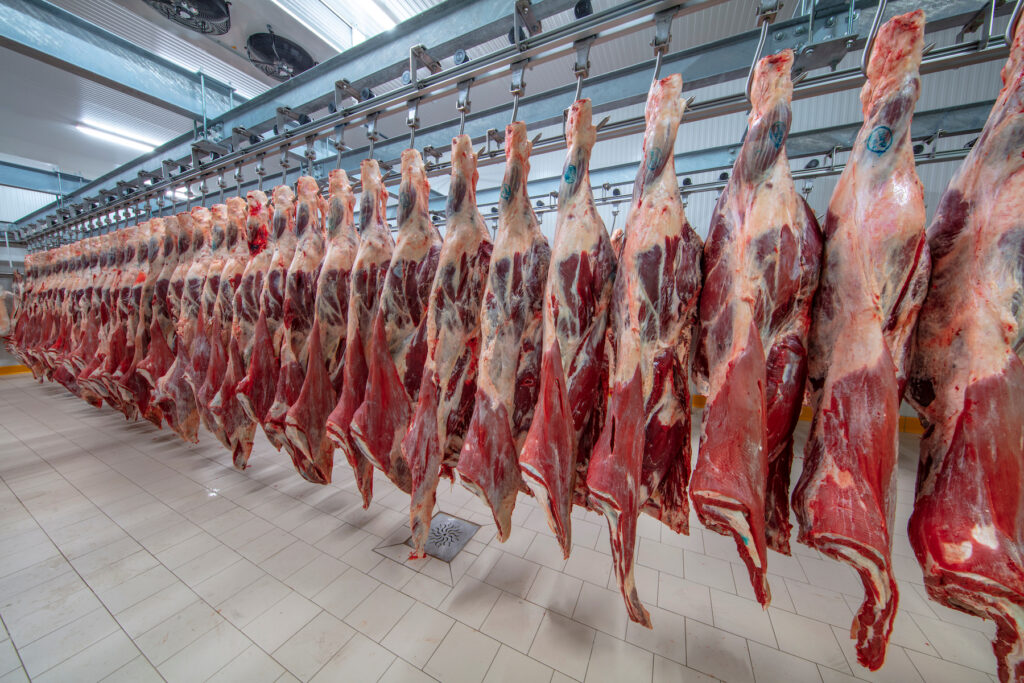Loss of local abattoirs threatening livestock farms, survey confirms
17th May 2023
Many food and farming businesses say they are entirely dependent on their local abattoir, with animal welfare, food miles and the local economy all coming under threat if closures continue at the same pace.
Local abattoirs provide a vital service, with 88% of farming and food businesses saying their closest abattoir is either essential or important to their success, a survey has revealed.
Meanwhile, 64% of those who responded said the availability, or lack of availability of a local abattoir impacted their future business plans.
The survey of over 1,300 UK farming and food businesses was carried out by the Sustainable Food Trust and National Craft Butchers.
Respondents ranked animal welfare, the local economy and the environment as key benefits of small and local abattoirs.
The loss of small abattoirs, at a rate of 10% per year according to the Food Standards Agency, has left abattoir customers reliant on just a handful of remaining operators. This is creating a fragile system that is vulnerable to collapse, SFT warned.
Threats to farming businesses
Journey times have increased significantly, with some animals now travelling more than 200 miles to slaughter. Respondents also reported that many of the remaining smaller abattoirs are increasingly busy and difficult to book into. As a result some businesses have been forced to close or limit their operations.
This has hit remote and island communities particularly hard.
One farmer on Orkney said: “Since Orkney abattoir closed in 2018 the situation here is dire – most of the free-range rare breed pig farmers have closed down. The next nearest abattoir costs us over £250 just for the ferry taking a trailer that can hold max 20 sheep, then there is the 30-mile drive to the port and the 110-mile drive to Dingwall.”
A number of respondents were very clear that their business was entirely dependent on their local abattoir. One respondent said: “If this one closed, we would lose our business,” and another said: “We are very lucky but if it shut, I would have to stop livestock farming as the nearest would be too far away.”
More than 30 respondents used an abattoir that has closed down since the survey was carried out. One customer of Tottingworth abattoir, which closed last year, said: “Without a local abattoir a major part of our local livestock sales will disappear. In the South-East there are so few abattoirs left that losing any more would prevent sales and increase food miles.”
Seeking solutions
The survey showed that farmers and food businesses are keen to find solutions, however. Sixty-four per cent said they would be interested in cooperative-owned abattoirs, 81% expressed an interest in mobile abattoirs, and 73% said they would pay more for this service.
There was also interest in doing more with their products, as 33% said they would collect the hides and skins if they had access to further processing facilities.
To revitalise the sector, however, the Government needs a multi-pronged approach to address the problems that are leading to closures, SFT said.
Megan Perry, SFT head of policy and campaigns, said: “We welcomed the Government’s announcement of funding for the sector, earlier this year. However, for this fund to have the impact that is needed, it must be accessible, broad and with a long timeframe, and it must be implemented alongside work to address other issues including regulation, recruitment and waste disposal costs.”
Eleanor O’Brien, managing director at National Craft Butchers, called on the government to implement flexibilities that already exist within regulation – specifically including the 5% rule, to help smaller abattoirs increase productivity, expand and thrive.
“Without this two-fold approach, the small abattoir sector will continue to stagnate, with severe consequences for farmers, animal welfare and supply chain diversity and resilience,” she warned.

